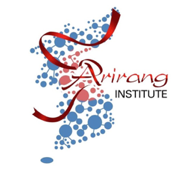‘한한령’ 풀리나 했더니 ‘우한폐렴’…면세업계 "사태 예의주시"
‘Korean Wave’ sanctions lifted…’Coronavirus’…Duty-Free ‘closely watching situation’
Source: E-Daily
[이데일리 이성웅 기자] 중국발 ‘우한 폐렴’(신종 코로나바이러스 감염증)이 급속도로 확산하는 양상을 보이며 면세점 업계가 긴장하고 있다. 이달 초 중국인 5000여명이 기업 인센티브 관광차 한국을 찾는 등 ‘한한령(限韓令·한류 금지령)’ 해제 기대감이 높아지던 상황에서 다시 암초를 만났다. 면세점 업계는 중국인 매출이 70%가 넘어 사태가 장기화할 경우 타격이 클 것으로 보인다. 27일 면세점 업계에 따르면 롯데·신라·신세계 등 주요 면세업체들은 질병관리본부의 지침에 따라 매장 직원 관리에 각별한 주의를 기울이고 있다. 신라면세점은 매장에 손 소독제를 추가 비치하고, 협력업체 판매사원이 원할 경우 마스크를 착용할 수 있도록 조치했다. 신세계면세점과 롯데면세점도 관련 고지물을 부착하는 등 주요 업체들이 동일한 수준의 대응에 나서고 있다.
Lee Seong-woong, a reporter at the Daily News, said, "‘Wuhan Flu’ (new strains of coronavirus) from China is spreading rapidly, and the duty-free industry is on edge. Earlier this month, about 5,000 Chinese visited South Korea for corporate incentive tours at a time when expectations were rising for the lifting of the "Korean Wave Sanctions" by Communist China. The duty-free industry is expected to be dealt a heavy blow if the situation is prolonged as Chinese sales exceeded 70 percent. According to the duty-free industry on January 27th, major duty-free companies such as Lotte, Shilla and New World are paying special attention to managing store employees in accordance with the guidelines of the South Korea Centers for Disease Control and Prevention. Shilla Duty-Free added hand sanitizers to its stores and allowed its partners' salespeople to wear masks if they want. Major players are taking the same level of action, with Shinsegae Duty-Free and Lotte Duty-Free also attaching related notices.
아직까지는 매출 하락 등 업계 타격을 걱정할만한 수준은 아니다. 중국의 설인 ‘춘절’ 기간은 중국인들도 귀성길에 오르는 만큼 보따리상인 ‘다이궁(代工)’은 물론 일반 방한 중국인 관광객이 줄어드는 시기이기 때문이다. 면세점 업계에 따르면 춘절은 물론 오는 2월 밸런타인데이 선물 수요까지 다이궁을 통해 이미 빠져나간 상태다. 다만 면세점 업계는 2월 이후 상황을 예의주시하고 있다. 중국 정부가 우한 폐렴 사태를 조기에 수습하지 못할 경우 회복 중인 중국인 수요에 영향을 줄 수 있기 때문이다.
So far, it is not enough to worry about a possible blow to the industry, such as falling sales. The Chinese New Year’s Day is a time when the number of Chinese tourists visiting South Korea, as well as Chinese tourists, is decreasing. According to the duty-free shop industry, demand for Valentine’s Day gifts as well as Spring Festival has already fallen. However, the duty-free industry will be closely watching the situation after February. If the Chinese government fails to deal with the Wuhan Flu crisis at an early date, it could affect Chinese economic demand.
한국관광공사에 따르면 지난해 11월까지 방한 중국인은 551만4144명으로 2018년 한해(478만9512명)보다 늘어났다. 또 지난 10일엔 중국 이융탕 임직원 5000여명이 인센티브 관광차 한국을 찾는 등 단체 관광 수요도 조금씩 생겨나던 차였다. 면세점 업계는 앞서 두 차례에 걸쳐 대형 전염병 사태를 겪은 바 있다. 2003년 사스(SARS·중증급성호흡기증후군) 사태 당시 외국인 관광객 수는 475만2762명으로 전년 대비 11.1% 감소했다. 그 영향으로 그해 상반기 서울 시내 6개 면세점 매출은 전년 대비 20% 가까이 줄었다.
According to the South Korea Tourism Organization, 5,514,144 Chinese visited South Korea in the first 11 months of last year, up from 4,789,512 in 2018. Also last October, there was a small demand for group tours, with about 5,000 executives and employees from China visiting South Korea for incentive tours. The duty-free industry has experienced two major epidemics. The number of foreign tourists during the SARS outbreak in 2003 dropped 11.1 percent on-year to 4,752,762. Due to the impact, sales at six duty-free shops in Seoul fell nearly 20 percent in the first half of that year from a year earlier.
2015년 메르스(MERS·중동호흡기증후군) 사태 당시엔 외국인 관광객 수가 1323만1651명으로 전년 대비 6.8% 줄었다. 특히, 2015년 7월 외국인 관광객은 62만9737명에 불과해 전년 동기 대비 53.5% 급감한 바 있다. 다만, 메르스 발병 당시에는 한국에서 첫 환자가 나온 이후 69일 만에 종료돼 2015년 전체 면세점 매출은 9조1984억원으로 전년 대비 10.7% 증가했다. 면세점 판매망의 의존도가 큰 화장품업계 역시 긴장하며 사태를 예의주시하고 있다. 지난 2018년 기준 국내 면세점 매출에서 화장품이 차지하는 비중은 56%에 달했다. 면세점 업계 관계자는 “현재로썬 섣불리 결과를 예측하기 어려운 상황”이라며 “사태를 예의 주시하며 대비에 각별히 신경 쓰고 있다”고 전했다.
During the MERS outbreak in 2015, the number of foreign tourists dropped 6.8 percent on-year to 1,323,651. In particular, only 629,737 foreign tourists visited the country in July 2015, a sharp drop of 53.5 percent from a year earlier. At the time of the MERS outbreak, however, it ended 69 days after the first case was reported in South Korea, with the combined sales of duty-free shops rising 10.7 percent year-on-year to 9.1984 trillion won in 2015. The cosmetics industry, which relies heavily on the duty-free sales network, is also nervous and keeping a close eye on the situation. Cosmetics accounted for 56 percent of sales at duty-free shops in South Korea as of 2018. "At the moment, it is difficult to predict the outcome of the situation." said a representative for a duty-free shop.
Source: https://www.edaily.co.kr/news/read?newsId=01764646625641984&mediaCodeNo=257&OutLnkChk=Y


